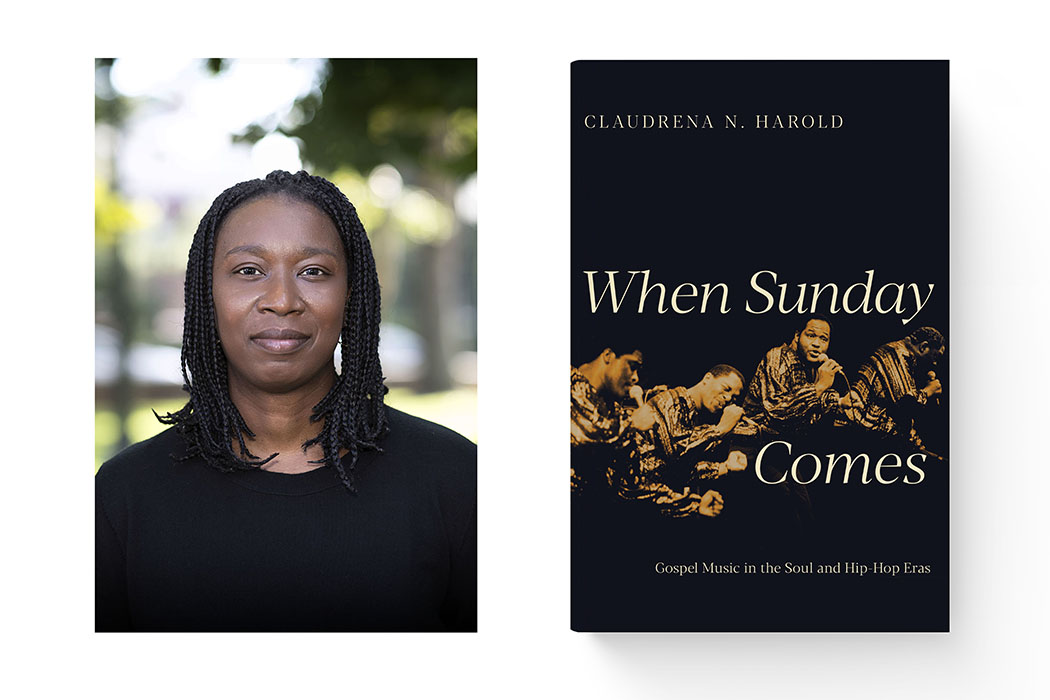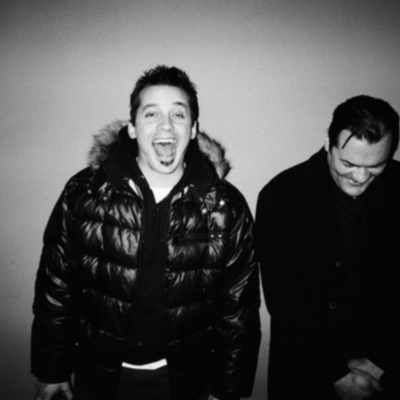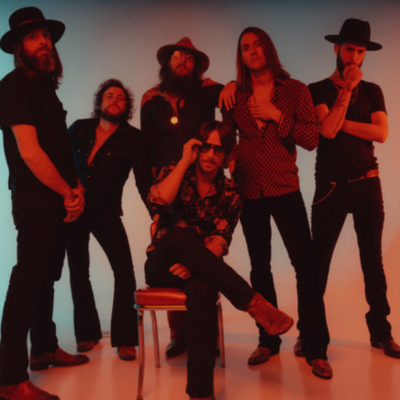Between 1980 and 1994, Christian/gospel music sales grew from $190 million to $390 million. And some folks in the business were uncomfortable with that success. Because gospel music is different.
“Were the contemporary gospel artists who experimented with the rhythms of funk, disco, and hip-hop more concerned with selling records than with saving souls?” wonders Claudrena Harold in the introduction to When Sunday Comes: Gospel Music in the Soul and Hip-Hop Eras. “And if so, was gospel music on the same path of decline as its secular sibling R&B, which many music critics insisted had lost its soul?”
Harold, a University of Virginia history professor whose academic expertise focuses on African American and U.S. labor history, the civil rights movement, and the Jim Crow South, has made something of a departure to pen her latest book, which chronicles gospel over the last three decades of the 20th century.
“Music has always been a passion…but it’s been more of a side gig,” Harold says. “Music is sort of my sanctuary, and I think when you write about something you love and it is a place of refuge, you’re not sure you want to open that space to others.”
But open that space, she has. In When Sunday Comes, Harold filters her brief history of gospel through her own experiences. The daughter of music lovers and the niece of an Atlantic Records songwriter, she obsessed over gospel while growing up. Other genres like the blues, R&B, and hip-hop also found their place, and it is at their intersection that Harold has situated When Sunday Comes.
Harold’s book focuses on the years between 1968, when Rev. James Cleveland founded the Gospel Music Workshop of America, and 1994, when Kirk Franklin cemented his status as a crossover superstar. She explores gospel’s triumphs and tensions, politics and theology—all set in a country violently reshaping its own socioeconomic and cultural framework.
In When Sunday Comes, Harold also intends to pinpoint the specific stylistic changes serving as signposts along gospel’s journey from the sanctuary to the spotlight.
“Gospel music is not always discussed in terms of classic albums or dominant sonic shifts,” she says. “But there are moments in gospel that compare to Dylan plugging in and going electric. The incorporation of soul or funk…would generate these intense debates about where gospel was going. I wanted to not just highlight those debates, but also those critical records that opened the debates up.”
During Harold’s Virginia book festival appearance, she will discuss music, history, and race with two other writers. With one of the other writers focused on southern hip-hop, Harold is excited to explore multiple musical genres.
“I imagine we will have an interesting conversation about the role of region shaping sound,” she says. “Some of the major sonic invasions and revolutions are from the South. Imagine hip-hop without the 757 and Pharrell and Missy Elliott.”
Um, no thank you.
Claudrena Harold will discuss her new book at a panel entitled Reading Under the Influence: Music, History & Race panel on March 15 at 7pm.






